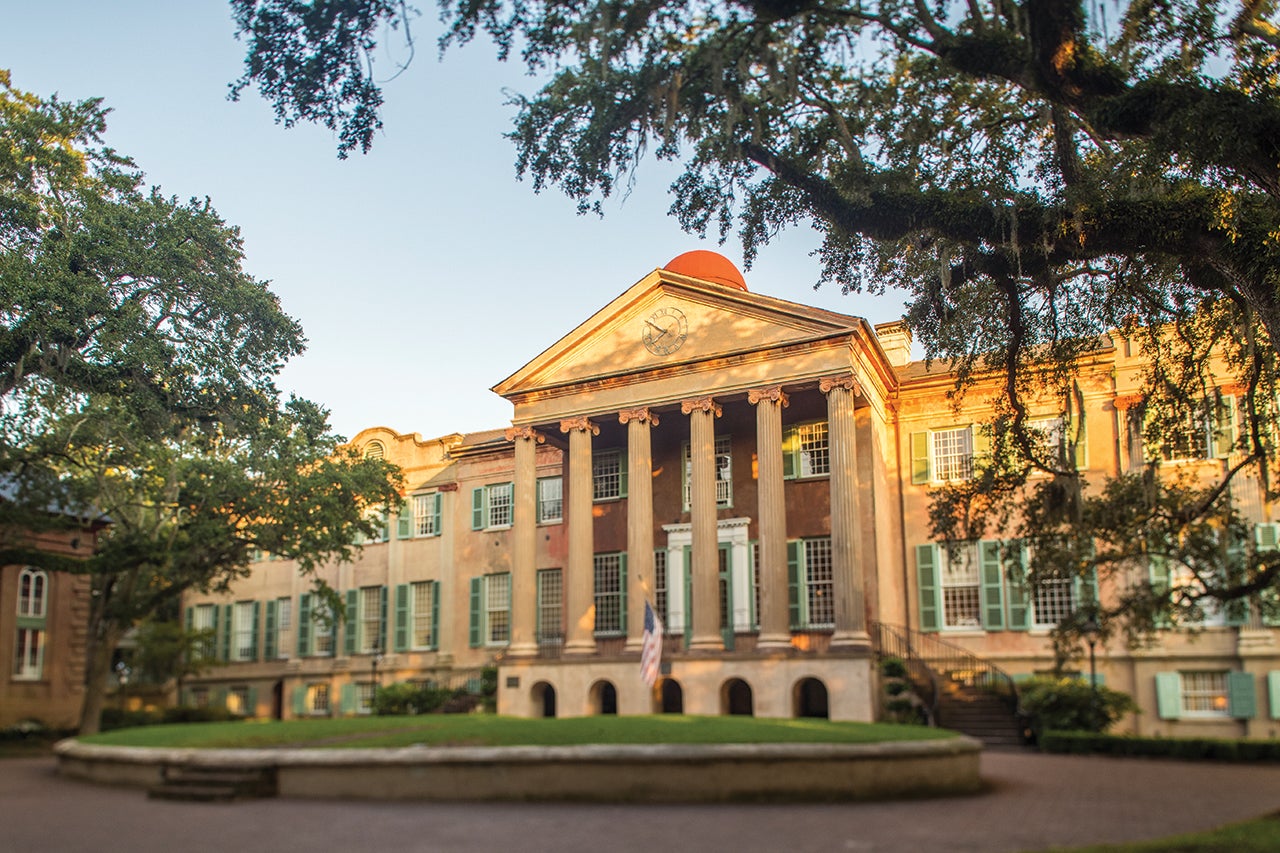The College of Charleston Board of Trustees on Thursday, May 7, 2020, approved a new strategic plan that will guide the institution over the next 10 years as it seeks to become a transformative national university that redefines liberal arts education through innovation.
Spearheaded by new CofC President Andrew T. Hsu and a steering committee of students, faculty, staff, administrators, alumni, board members, supporters and community members, the plan and its adoption come as the College celebrates the 250th anniversary of its founding this year.
“On behalf of the Board of Trustees, I am so pleased with the work produced by President Hsu, our Strategic Planning Steering Committee and our entire campus community,” says David Hay ’81, chair of the Board of Trustees. “The Board has enthusiastically endorsed and approved the College’s new strategic plan. It promises to build on the great work of previous students, faculty, staff and administrations and will take the College to even greater heights. This is truly a transformational time in the life of the College of Charleston.”
RELATED: Learn more details about the College’s new strategic plan.
The plan, which will be formally named and finalized over the summer, is built around three major pillars:
- Student Experience & Success – Increase retention, graduation rates and campus pride and prepare students to work and lead in a globally connected world.
- Academic Distinction – Become ranked as a national university distinguished by its innovative liberal arts core.
- Employee Experience & Success – Create an inclusive workplace that inspires excellence and innovation in a thriving faculty and staff community.
Under each pillar are specific strategies and initiatives that will be carried out to achieve the plan’s overarching vision. Each strategy and initiative are assigned to a member of the campus community who will be responsible for organizing a committee tasked with achieving that part of the plan. Timelines and key performance indicators are built into each initiative to measure progress.
Launched in June 2019, the planning process involved a broad cross-section of the CofC community. More than 5,000 faculty, staff, students, administrators, alumni and community members participated in the process through workshops, focus groups, online surveys and more. The College was assisted in the planning process by Blue Beyond Consulting.
“I am very proud of our campus community,” President Hsu says. “The strategic planning process was a pan-campus effort, meaning everyone was involved: students, faculty, staff, alumni, donors, volunteer leaders and community members. Everyone had a voice, and it certainly shows in the plan. There is a feeling across campus that – even in the midst of such an uncertain time brought on by this pandemic – the College of Charleston is ready to step onto a larger stage. In fact, the College has seen quite a bit of uncertainty over its 250 years. And each time, it has gotten stronger.”
In furtherance of Hsu’s efforts to create a more diverse and inclusive campus community, the plan includes strategies aimed at boosting enrollment of underrepresented minority and first-generation students and increasing the number of staff, faculty and administrators from underrepresented populations. The plan also seeks to raise the College’s national profile by calling for the development of signature undergraduate, master’s and doctoral programs.
Since becoming the 23rd president of the College of Charleston last spring, Hsu has become a student of the university, conducting an analysis of institutional history and trends. Based on his recommendations and his charge to think big, the campus community responded accordingly and provided valuable feedback that shaped the strategic plan.
“Now, more than ever,” Hsu says, “it is time that the College of Charleston’s reputation across the nation and around the globe adequately reflect the amazing talent and extraordinary achievements of our students, faculty, staff and alumni. By focusing on student success and employee success, the College will rise in recognition. The time for transformation is now.”





